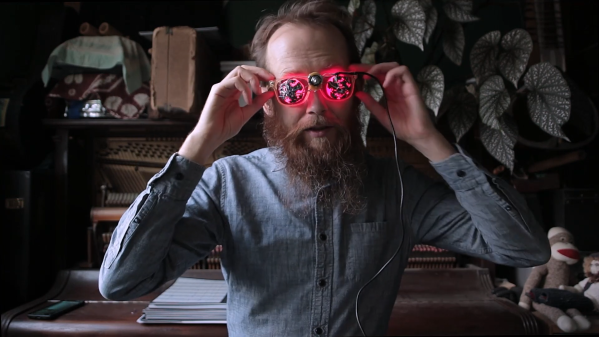Typically, to improve one’s eyesight, we look to tools like corrective lenses or laser eye surgery to improve optical performance. However, [Casey Connor 2] came across another method, that uses light exposure to improve color vision, and set about trying to achieve the same results at home.
A recent study published in Nature showed that a single exposure to 670 nm light for 3 minutes lead to an improvement in color perception lasting up to a week. The causative method is that cones in the eye get worse at producing ATP as we age, and with less of this crucial molecule supplying energy to cells in the eye, our colour perception declines. Exposure to 670 nm light seems to cause mitochondria in the eye to produce more ATP in a rather complicated physical interaction.
For [Casey’s] build, LEDs were used to produce the required 670 nm red light, installed into ping pong balls that were glued onto a pair of sunglasses. After calculating the right exposure level and blasting light into the eyes regularly each morning, [Casey] plans on running a chromaticity test in the evenings with a custom Python script to measure color perception.
[Casey] shows a proper understanding of the scientific process, and has accounted for the cheap monitor and equipment used in the testing. The expectation is that it should be possible to show a relative positive or negative drift, even if the results may not be directly comparable to industry-grade measures.
We’re eager to see the results of [Casey]’s testing, and might even be tempted to replicate the experiment if it proves successful. We’ve explored some ocular topics in the past too, like the technology that goes into eyeglasses. Video after the break.











